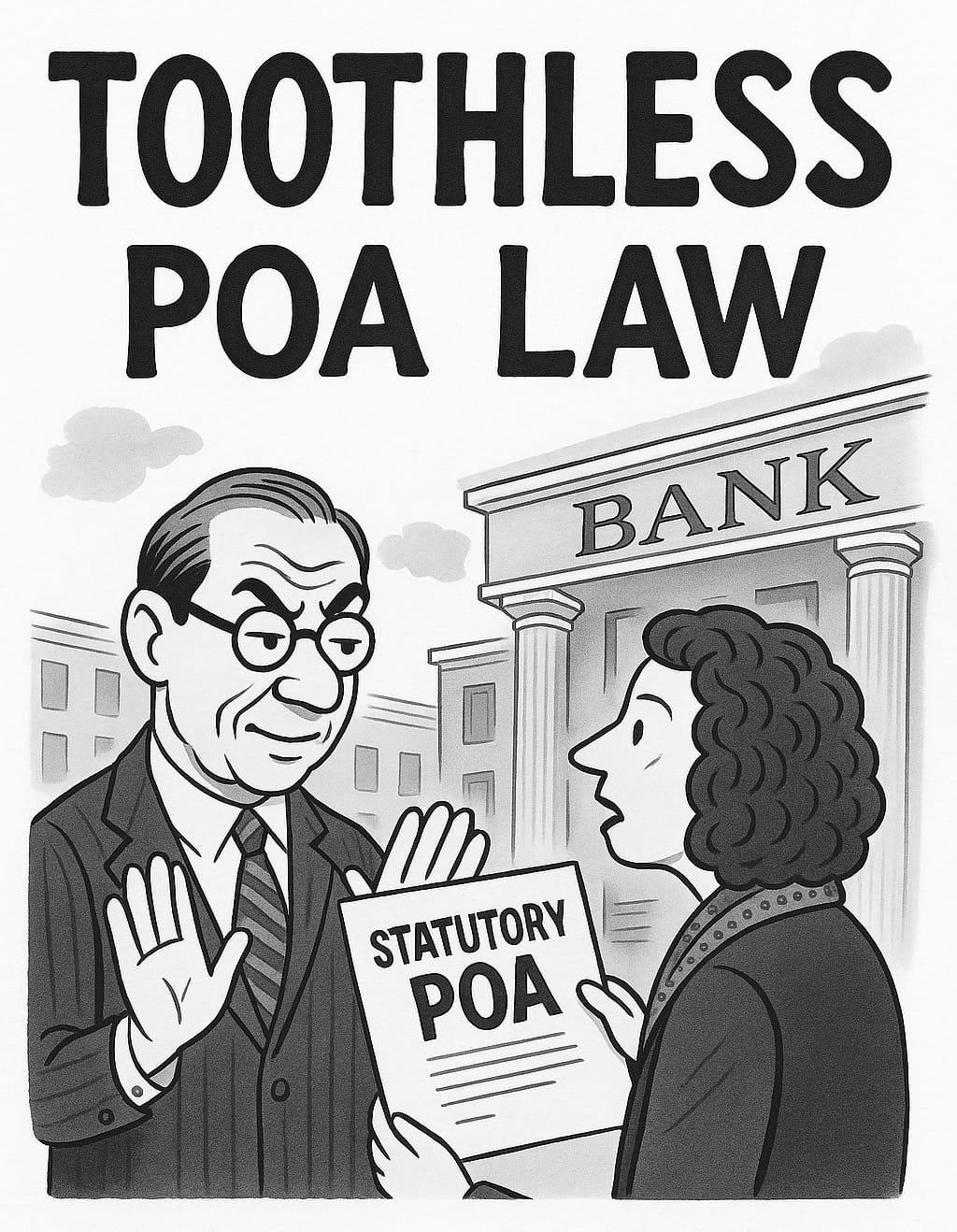A power of attorney that is "durable" allows the agent to act on behalf of the principal even after the principal's incapacity.
In New York, General Obligations Law § 1501A (Powers of attorney not affected by incapacity) gives the rules for durable powers of attorney.
GOL § 5-1501A(1) makes all powers of attorney "durable" by default: They are "durable unless [the instrument] expressly provides that it is terminated by the incapacity of the principal."
GOL § 5-1501A(2) explains what it means for a power of attorney to be "durable":
The subsequent incapacity of a principal shall not revoke or terminate the authority of an agent who acts under a durable power of attorney. All acts done during any period of the principal's incapacity by an agent pursuant to a durable power attorney have the same effect and inure to the benefit of and bind a principal and his or her distributees, devisees, legates and personal representatives as if such principal had capacity. If a guardian is thereafter appointed for such principal, such agent, during the continuance of the appointment, shall account to the guardian rather than to such principal.
The durability of a power of attorney explains why it is essential for a complete estate plan. This aspect makes a power of attorney an "advance directive": The principal designates someone (the agent) to act on the principal's behalf even after the principal becomes incapacitated. So, the agent can pay bills and make other financial decisions that are in the principal's interest even after the principal can no longer do so.
The durable feature of a power of attorney makes it crucial in elder law planning. The agent can act on behalf of a principal even after the principal develops dementia or Alzheimer's.
A durable power of attorney can avoid the cost and delay of a guardianship proceeding. Someone who has not signed a durable power of attorney does not have an agent who can act on their behalf when they become incapacitated. But their bills (such as rent or electric bills) still have to be paid. The only option that remains is a costly and time-consuming guardianship proceeding.
Even someone who has a revocable (or irrevocable) trust can benefit from a durable power of attorney. Revocable trusts and Medicaid-qualifying irrevocable trusts are used as containers to hold the trust creator's assets. In the case of a revocable trust, the grantor is typically the trustee. The first provides a successor trustee who will act in place of the grantor-trustee in the event of the grantor's incapacity. In the case of an irrevocable trust that allows the trust creator to qualify for Medicaid, the trust creator is rarely named as the trustee. So, the trustee takes over control and management of the trust's assets as soon as the trust is created and the assets are transferred to the trust. A durable power of attorney is useful even when someone has a revocable or irrevocable trust because people sometimes fail to transfer their assets to their tests. The agent can transfer the assets to an existing trust, create a new trust on behalf of the principal that will manage the assets, or manage the assets directly.
What happens to a durable power of attorney after an incapacitated principal recovers their capacity? With a durable power of attorney, the agent can act on behalf of a principal before, during, and after the principal's incapacity. In contrast, when a power of attorney is not durable, the agent can only act on behalf of the principal before the principal is incapacitated and after the principal regains capacity; the agent in a non-durable power of attorney cannot act on behalf of an incapacitated principal.
"Durable" is just one word (an adjective), but it explains why powers of attorney are so powerful and why they are an essential tool in every estate plan.
Hani Sarji
New York lawyer who cares about people, is fascinated by technology, and is writing his next book, Estate of Confusion: New York.







Leave a Comment